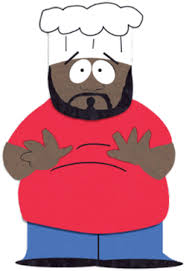
Introduction
Chef, a character from the animated television series South Park, has been a significant part of popular culture since his introduction in 1997. Voiced initially by Isaac Hayes, Chef is known for his deep, baritone voice, comedic talents, and memorable musical numbers. His role in the series transcended mere comic relief; he served as a mentor to the four main child characters—Stan, Kyle, Cartman, and Kenny—providing wisdom and life lessons with a humorous twist. Chef’s significance within the series and broader cultural implications reveal much about the themes South Park sought to address.
Chef’s Role in South Park
Chef was characterized by his passion for cooking and knowledge of life lessons. His iconic songs, often infused with sexual innuendos, offered comedic value, yet they also provided commentary on societal issues. Chef’s interactions displayed a unique juxtaposition of innocence from the children and the often adult themes they explored. This dynamic was not only humorous but crucial in maintaining the satirical essence of South Park.
However, Chef’s character also highlighted themes of race and identity. As one of the few black characters in a predominantly white cast, Chef played a role in discussions about racial dynamics and representation in media. The character’s complexity contributed significantly to the show’s narrative and social commentary.
The Departure of Chef
In 2006, Chef’s character was controversially written out of the show following Isaac Hayes’ resignation, which was reportedly due to differences in opinion regarding the show’s portrayal of religion. The departure sparked discussions among fans about the show’s direction and the treatment of characters. In an episode titled “The Return of Chef,” the character was brought back but was portrayed in a manner that was met with mixed reviews, reflecting the ongoing debate about creative rights and character integrity.
Cultural Impact and Legacy
Despite his departure, Chef’s impact continues to resonate. His catchphrases and moments are still referenced in popular culture. The character also contributed to the broader acceptance and recognition of animated shows addressing adult themes. Chef remains a beloved figure, and his iconic presence is often remembered fondly as a representation of the early days of South Park.
Conclusion
Chef’s legacy within South Park is a blend of humor and significant social commentary. His character not only entertained but challenged viewers to think critically about race, relationships, and moral lessons. With the show continuing to evolve, Chef’s influence is still felt today, reminding fans of the rich tapestry of characters that made South Park a cultural phenomenon. As discussions about representation and character development continue in the industry, Chef remains a pivotal example of how animation can boldly confront complex issues while providing entertainment.
You may also like

The Importance of Storytelling in Modern Society

Understanding the Fall Season: Change, Beauty, and Tradition
